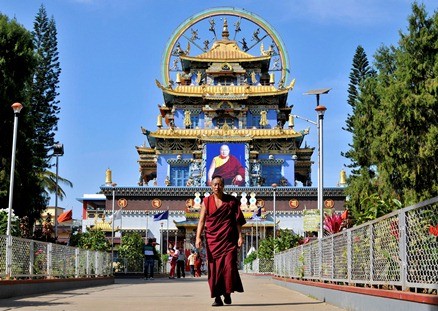Seven years ago, some 300 Tibetan monks charged at policemen stationed to monitor the Drepung Monastery, resulting in a violent riot which left 19 people dead and 382 injured.
The Chinese government saw the incident as part of a separatist plot by the Dalai Lama in order to undermine the success of the Beijing 2008 Olympic Games and, as a result, the monastery was closed to visitors for five months.
To prevent similar incidents, monasteries across the region have begun a program to implement mandatory classes on Chinese law and to improve the living conditions of monks, according to a report by the Global Times.
According to Qin Yongzhang, a research fellow of Tibetology with the Chinese Academy of Social Sciences, encouraging monks to obey the laws is an integral part such efforts. Study sessions are designed to develop national consciousness and civic consciousness, both of which aid in dissuading the monks from entertaining separatist views.
"As long as monks fully embrace these doctrines, they will be law-abiding," said Lozang Khedrup, a monk and deputy head of the administration committee of Samye Monastery.
To forge better communication with the religious sector, monasteries that accommodate more than 20 monks and nuns are also required to form management committees which are also comprised of government-appointed officials, while monasteries that house over 100 devotees will be provided with a police substation. The regional government has also urged these appointed officials to treat monks and nuns with respect.
In Drepung Monastery, for instance, 13 officials and 12 monks comprise a committee, with a government official acting as its head.
"At first, the monks distrusted us, seeing us as officials who merely serve the government," said Norbu, committee head of the Drepung Monastery. "Now they would often chat with us casually and not hesitate in asking for favors."
Six of the monastery's major buildings have received government funding worth 70 million yuan for renovation purposes. By the end of 2014, over 1,750 monasteries had good access to roads and telecommunications networks, according to local government statistics.



























